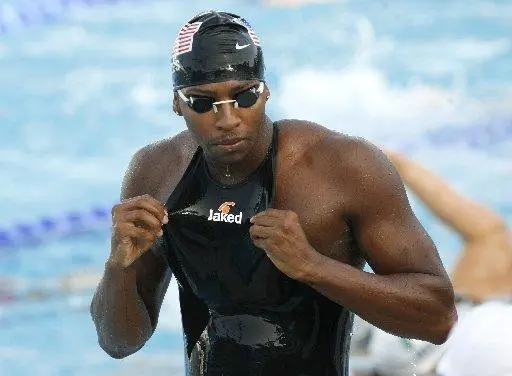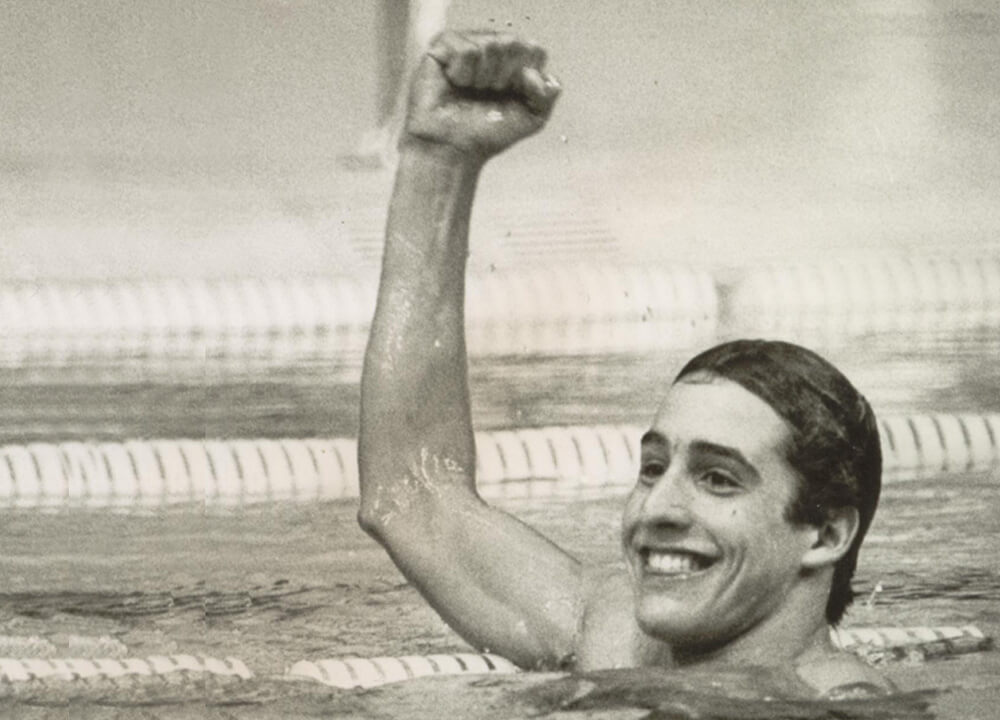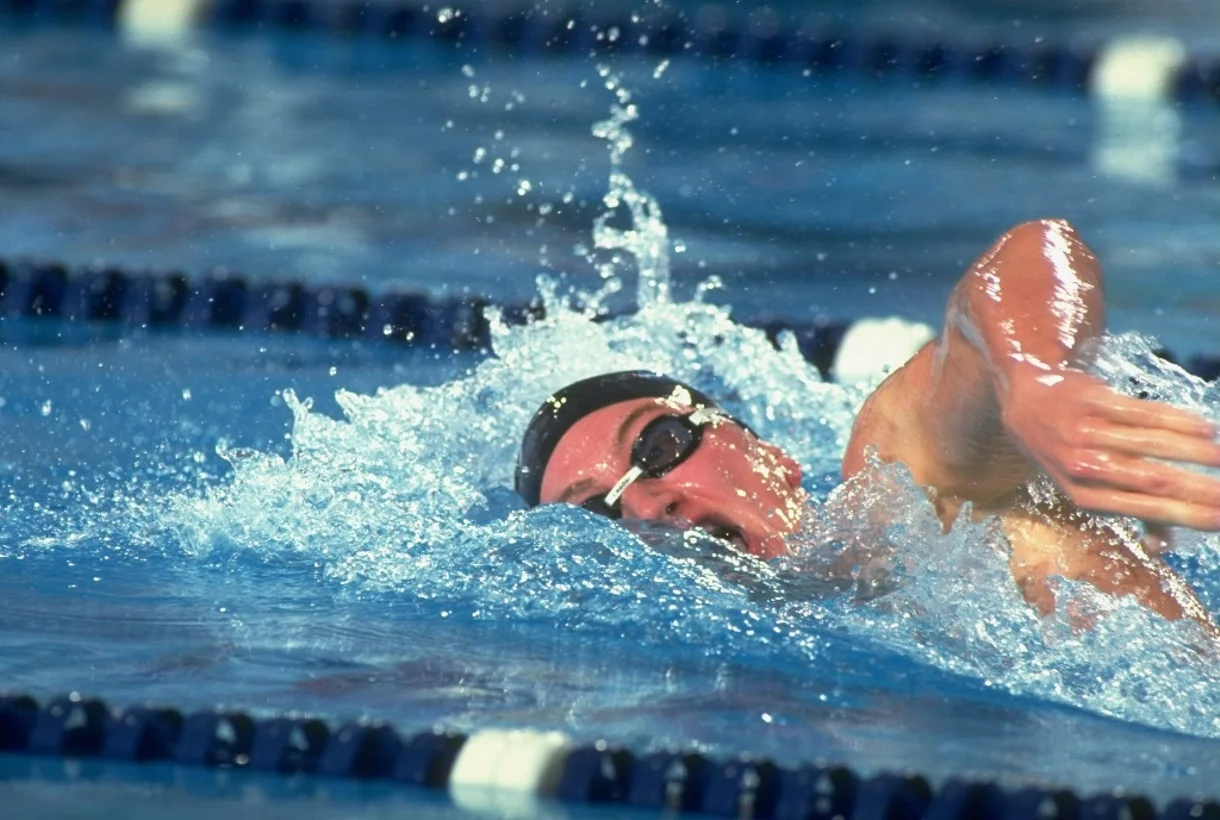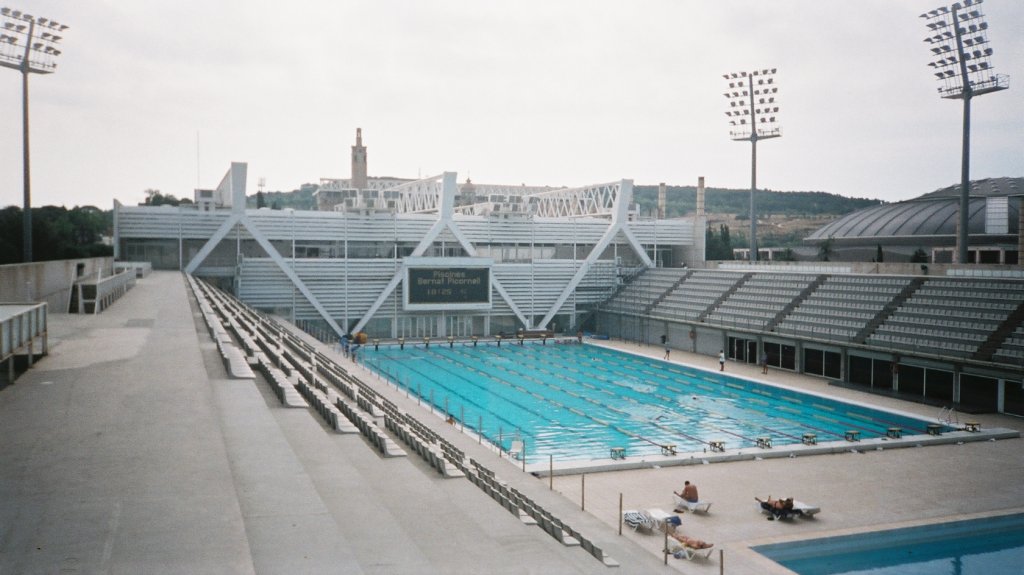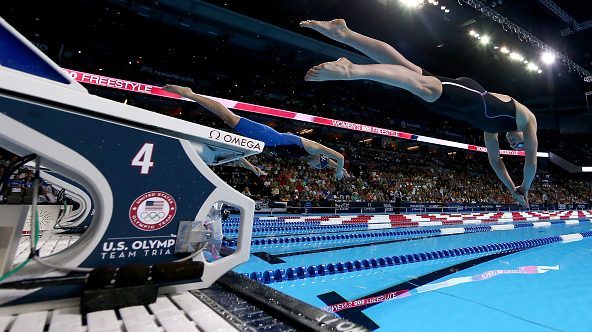By: Zachary Draves
The 2008 Beijing Olympics was defined in large part by Michael Phelps and his record setting exploits in the pool. He dethroned Mark Spitz to win eight gold medals in a single Olympics, the most of anyone in history.
He had exploded into a worldwide icon, but he didn’t do it alone.
He was part of arguably one of the most decorated US swimming teams of all time. A team that included Aaron Peirsol, Dana Torres, Ryan Lochte, Natalie Coughlin, Garrett Weber-Gale, Jason Lezak, and a then 24 year old dynamic freestyle swimmer from the Bronx named Cullen Jones.

(Courtesy: SwimSwam)
From his early days at North Carolina State University, Jones had set his sights on Olympic glory. He had grown up with many of these eventual big names in swimming and already there were signs of what was to come.
After turning pro in 2006, he broke out at that years’ Pan Pacific Swimming Championships where he set a meet record in the 50 meter freestyle and alongside Phelps, Lezak, and Neil Walker, swam the leg in the 4×100 meter freestyle relay and set a world record.
The following year, they repeated that feat at the World Aquatics Championships.
Then came Beijing and the whole world was watching as Phelps was on the precipice of history.
Jones once again swam the leg of the highly anticipated 4×100 meter freestyle relay in what he told Team NBS Media in a phone interview last Thursday was “the scariest thing I have ever done”.
They were up against the heavily favored French team that included world record holder Alain Bernard. Brimming with confidence, Bernard reportedly said “The Americans? We’re going to smash them. That’s what we came here for.”
After Phelps and Weber-Gale swam, Jones hit the water with the Americans holding a slight lead over the French. Jones was up against world record holder Frédérick Bousquet. The Americans found themselves trailing by 6/10th of a second going into the final leg with Bernard and Lezak as the respective anchors.
At that moment, Jones felt it was lost.
“Part of it was sitting back and saying Oh My God I messed up” he said. Bousquet caught me and I was 47.65. It wasn’t a bad swim, but we knew what we were up against. We definitely felt that there was a chance that this could mess up Michael’s eight.”
But in the closing 50 meters of the race, it was Lezak that gained ground on Bernard and he ultimately touched the wall first with a world record time of 46.06, the fastest split time in the history of this event.

It is still referred to as the greatest comeback in the history of swimming.
“It was surreal to watch Jason track Bernard down,” said Jones. “I have the best view to watch because I am on the side of the pool.”
The indelible images of Phelps and Weber-Gale on the deck of the pool and exploding in jubilation is absent of Jones who said that he was following protocol after his run.
“When you are doing a relay they tell you to go to the side and I was following that protocol and going underneath,” he said.
But Jones eventually did come into the picture and joined his teammates in celebration of their heroic feat.
“The best part was standing on the podium and singing the national anthem,” he said. “Once we got on the podium, there was nobody else in the room, there were just the four of us.”
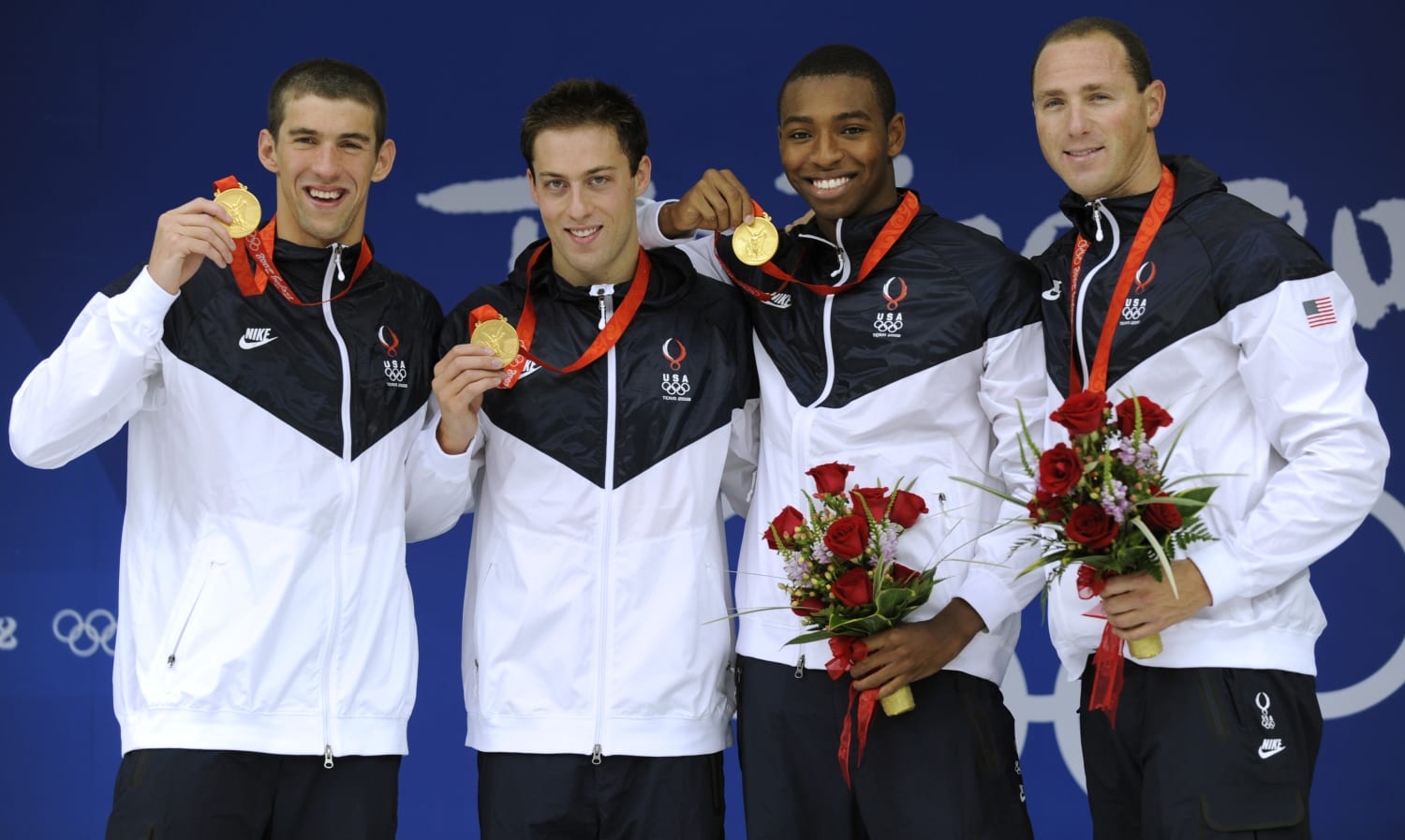
(Courtesy: Timothy Clary AFP/Getty Images)
It was Jones’ first ever Olympic gold medal.
Afterwards, he found himself on a world wind of publicity that he couldn’t have imagined just a few short years prior.
“It was amazing to bring home a gold medal,” he said. “It was nothing but doing articles or interviews. I was on the Today Show and the Late Show. My life really changed. I love every minute of what happened. The men’s team bonded together and we knew we had a talented group.”

(Courtesy: Mike Hewitt/Getty Images)
Jones laid low for about three to four months before rededicating himself to prepare for the 2012 London Olympics. Hard work paid off again when he won his second gold medal as part of the 4×100 medley relay team.
:max_bytes(150000):strip_icc():focal(216x0:218x2)/cullen-jones-01-435-27b5a32fbf424f2895e40acf1e47e12d.jpg)
(Courtesy: AP Photo/Julion Cortez)
Since then, he is married with a four year old son and still remains involved in swimming. He works with Speedo and USA Swimming on initiatives to improve racial diversity, something that is near and dear to him.
Due to historical and present day discrimination, the sport of swimming has always been an overwhelmingly elite white sport.
According to a 2022 study by the Northwestern University Feinberg School of Medicine, racial disparities in swimming have spread across generations in large part due to lack of access to swimming pools.
The study found that Only 46% of Black and 47% of Latino children had swimming lessons, compared to 72% of white children. It also cited a CDC report that found Black children between the ages of 10-14 drown in pools at rates over seven times higher than white children.
At the age of five, Jones himself almost drowned while on a family trip at a water park in Pennsylvania.
When asked if he sees progress or how much more work needs to be done, he says “ little column A little column B.”
“To see what happened after 2008 there was this huge surge of diversity and we are still seeing more people of color in the sport, but it is going to take time, he said.” “It is going to take time to break down 400 years of systemic racism.”
(Courtesy: AP Photo/Simone Smalls PR)
Fifteen years still doesn’t entirely register to Jones. He recalls the ten year anniversary of the greatest relay ever when he and his three teammates were at the Golden Goggles celebration in New York and it was then that he took it all in.
“It is still surreal,” he said. “That moment was obviously special to us because we weren’t expected to win. We were stuck to what we were focused on. It is a great feeling.”
He still keeps in close contact with his teammates.
Jones certainly has many memories that stay with him, but there was one in particular that was simply unforgettable.
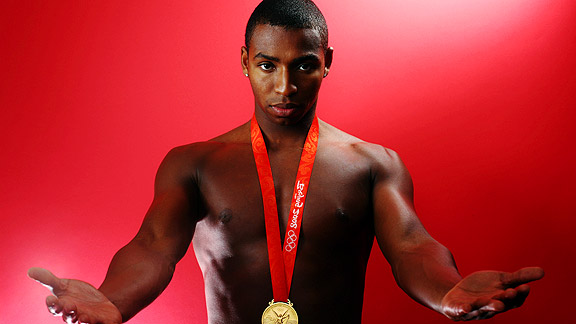
(Courtesy: Kristian Dowling/Getty Images)
The night before the relay, he recalls being woken up at 1am by Phelps who said that LeBron James, Kobe Bryant, and Dwayne Wade were in the lobby of their apartment building that they had shared with the track team.
The core of the Redeem Team instilled in them the confidence they needed to make history. Jones, a basketball player growing up, was absolutely enthralled by their presence. In particular, he recalls Kobe mentioning how they took after them and kept a close eye on their pursuits.
“The coolest part of that story was that we were feeding off each other as part of Team USA, “ he said. They were inspired by us because we were dominant.”
The Beijing Games was chock full of stars. Cullen Jones was a star that was made and fifteen years later he continues to illuminate.
He went into Beijing with promise and left with prestige.


 NFL
NFL